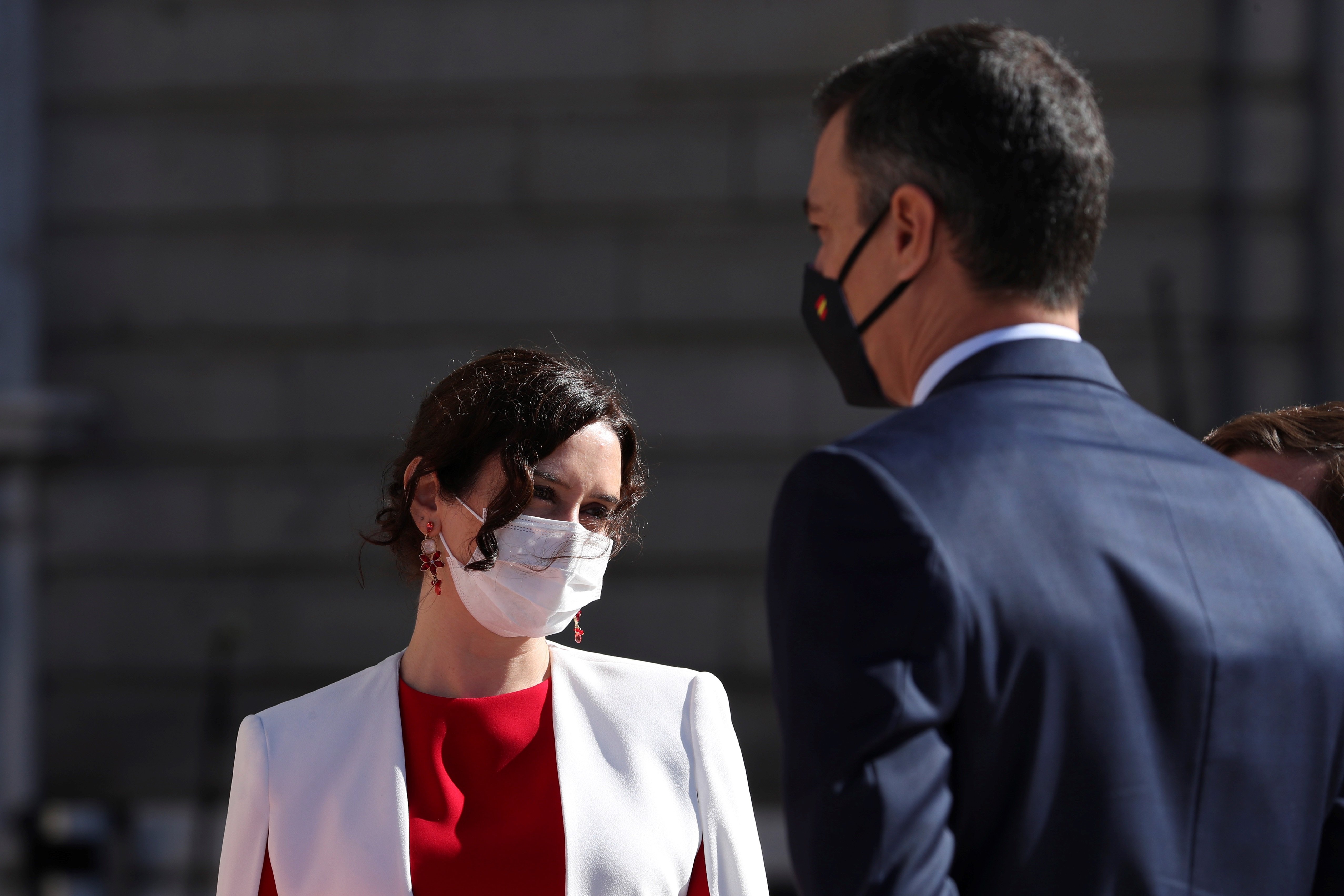If the fiesta was in full swing at the Popular Party's Calle Génova headquarters before the polling stations had even closed, the gathering places of the Madrid left were like a funeral. All, without exception. Accustomed to election nights that offer some colour for their stories, journalists saw only long faces and hidden candidates. The Ayuso tsunami had just swept over them. They had tried to ridicule the phenomenon, but the populism of "freedom to have a beer" won more votes than the three progressive parties put together. If you don’t have a debate, the one about the Covid restrictions and the crisis, they do it for you. And the result has been what it has been: an Isabel Díaz Ayuso greatly strengthened, even more so than was expected, and the far right holding the reins. All coordinates have been upended on a single election night.
A lot went wrong, not just the polls by the government-run CIS agency. Starting with the slogan of Unidas Podemos: "Let the majority speak." Most did speak, with a monumental turnout, and the result was not as expected: the entire map of the region has been painted PP-blue, except for two small municipalities. The traditional red councils and districts of the south and east have also gone blue. In Leganés, Ayuso obtained 35.8%; in Usera, 34.5%, and in Villa de Vallecas, 34.4%. To give just a few examples. Pablo Iglesias attempted to turn the situation around, making the threat of fascism crystal clear. But there was no reaction to the threatening letters, the bullets of different calibres or blood-spattered knives. Deep reflection required on the left about what went badly, what went wrong.
First immediate consequence: Pablo Iglesias improves the Podemos results but descends from heaven to hell in a couple of months. He goes from being Spain's newly-installed second deputy PM to leaving all his posts and abandoning politics. Makes way for better leadership, Yolanda Díaz, so as not to be in the way. An unprecedented gesture: so far, Iglesias has been the only one to assume his responsibilities. On the other hand, no sign of Pedro Sánchez, who is meeting with his party tomorrow. The PSOE has suffered a monumental defeat, its worst result ever in the Community of Madrid. So much so that Más Madrid overtook it in the results, a bittersweet moment. Ironically, Iglesias's wet dream is achieved by Íñigo Errejón (and earlier, by the BNG in Galicia). PSOE candidate Ángel Gabilondo is reluctant to relinquish his chair, although some Socialist leaders kindly show him the way out via media leaks.
Second consequence: the Moncloa government palace becomes the bunker and refuge for the left in the face of the Ayuso tsunami. There had been much speculation in the Spanish capital about Sánchez calling a hypothetical snap general election this autumn. This is no longer a card that the Spanish PM can play, given the scenario of extreme unpredictability. Strategy guru Iván Redondo has already missed too many key moves this season. This Wednesday, first deputy PM Carmen Calvo was the only one to open her mouth. And she did so to ensure that there is a legislature ahead. The coordinates have changed: what was yesterday mapped on the SWOT charts as an opportunity is today a threat.
The left has just one life preserver to throw: they are gambling everything on the European funds in order to be able to save the furniture in the next general election, whenever that might be. In total, 140 billion euros, which Sánchez and Yolanda Díaz will try to invest in recovery of the economy, in the recovery of the employment market and, also, in the recovery of electoral expectations. Economic deputy PM Nadia Calviño is confident and expects the disbursement for the first six-month period (16 billion euros) to arrive in the second half of 2021. The distribution of this golden rain, however, will be linked to the fulfillment of the 330 objectives to which the Spanish government has committed itself. This does not mean that there will be no more quarrels and strong discussions within the cabinet, but Díaz wants to be more discreet than Iglesias. Which in part is what may have brought the left to the point it has reached.
The majority that voted in Sánchez
Another element that moves the phantom of a snap general election further away is, also, the undoing of Inés Arrimadas's Ciudadanos party. If it already plummeted in Catalonia, going from largest party with 36 deputies to penultimate with six, the disaster in Madrid was even more clamorous, where the party has simply disappeared, having lost all representation. Thus, Sanchez's "centrist" temptation - to pact with a party on the verge of extinction - is diluted. The only real option he has is the majority based on pro-independence, nationalist and sovereignist parties. The rest are now only fantasy. And the Catalan parties have a lot of favours to be paid back for, from the time of Sánchez's experiments with variable geometry. Starting with the dialogue table and political prisoners.
In fact, the issue of the pardons for the prisoners is now starting to move forward, right after the election, as planned. Today, the Supreme Court has given the pro-independence prisoners five days to file submissions on the pardons. After this procedure, all that remains is for judge Manuel Marchena to issue his report. From there it will jump to the Spanish cabinet table. It will be the true test of fire to see whether Sánchez really has the political will to fulfill his commitments or not. The ambiental pressure will be very intense, but when it comes to Catalonia, it has never ceased to be so.

